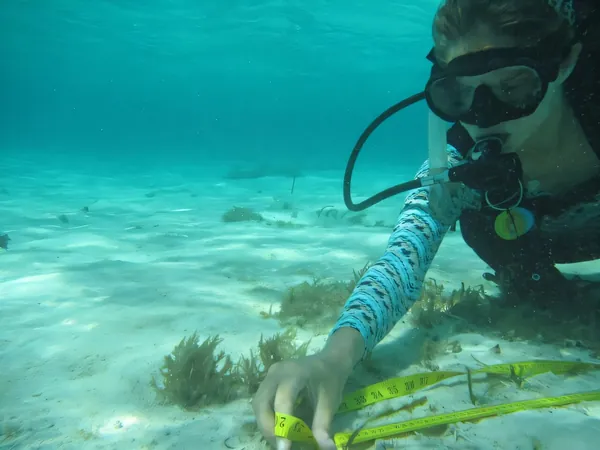
Surprising Resilience of Seagrass Amid Climate Change Threats
2025-04-15
Author: Emma
Seagrass: The Unexpected Survivor
Recent research unveils a dual narrative surrounding tropical seagrass—it is vulnerable yet more resilient than previously thought against the backdrop of climate change. Spearheaded by Fee Smulders from Wageningen University & Research, a team of international scientists dove deep into the effects of rising water temperatures, grazing by marine herbivores, and nutrient pollution on these vital ecosystems.
An Ecosystem Under Siege
Seagrass beds play a crucial role in marine health by providing essential food and habitat for various aquatic life, protecting coastlines from erosion, and acting as a carbon sink. However, climate change is ramping up the pressure on these ecosystems, putting their future at risk.
Groundbreaking Research Across the Atlantic
In a year-long experiment spanning ten locations from the Caribbean to the United States' western Atlantic coast, over thirty researchers examined seagrass recovery. By creating disturbance gaps in seagrass meadows and monitoring recovery in enriched plots, they gained insights into how these plants fare under various stressors.
Unexpected Findings: Warming Waters May Help—But There's a Catch
In a stunning twist, the study found that, contrary to expectations, warming seawater can sometimes stimulate seagrass recovery. As marine ecologist Fee Smulders notes, "Unlike corals, seagrass appears to thrive in slightly warmer conditions. But we must tread carefully—extreme heat can decimate entire meadows."
The Double-Edged Sword of Grazing and Pollution
However, challenges loom large. Rising ocean temperatures are pushing herbivores like sea turtles and fish towards colder northern waters, leading them to feast on seagrass there. Coupled with nutrient overload from agricultural runoff, this creates a perfect storm. Smulders explains that excess nutrients fuel algal blooms which suffocate the seagrass and impede recovery. The compounded effects of heavy grazing and high nutrient levels significantly diminish seagrass's resilience.
The Call to Action for Ocean Health
Co-author Marjolijn Christianen underscores the urgency of maintaining water quality to safeguard seagrass ecosystems. "Seagrass's worth cannot be overstated—for marine life, climate mitigation, and coastal communities alike. If we want these crucial ecosystems to endure amidst climate chaos, we must shield them from additional harm."









 Brasil (PT)
Brasil (PT)
 Canada (EN)
Canada (EN)
 Chile (ES)
Chile (ES)
 Česko (CS)
Česko (CS)
 대한민국 (KO)
대한민국 (KO)
 España (ES)
España (ES)
 France (FR)
France (FR)
 Hong Kong (EN)
Hong Kong (EN)
 Italia (IT)
Italia (IT)
 日本 (JA)
日本 (JA)
 Magyarország (HU)
Magyarország (HU)
 Norge (NO)
Norge (NO)
 Polska (PL)
Polska (PL)
 Schweiz (DE)
Schweiz (DE)
 Singapore (EN)
Singapore (EN)
 Sverige (SV)
Sverige (SV)
 Suomi (FI)
Suomi (FI)
 Türkiye (TR)
Türkiye (TR)
 الإمارات العربية المتحدة (AR)
الإمارات العربية المتحدة (AR)